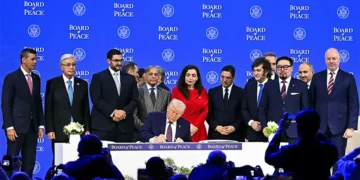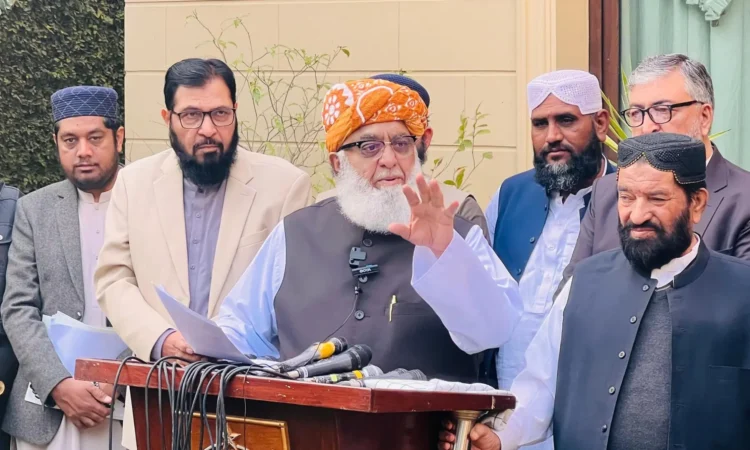ISLAMABAD (MNN); Jamiat Ulema-i-Islam-Fazl (JUI-F) chief Maulana Fazlur Rehman on Tuesday sharply criticised a series of recently approved laws aimed at curbing domestic violence, banning child marriages, and protecting transgender rights, calling them unacceptable and contrary to Islamic principles.
He noted that the National Assembly passed the Domestic Violence (Prevention and Protection) Bill 2025 last month, while the Balochistan Assembly approved a bill banning child marriages, despite protests from opposition members including JUI-F’s Younis Zehri. Balochistan’s cabinet also cleared its first transgender rights policy in September.
Speaking to the media, the JUI-F chief objected to declaring marriage under the age of 18 as abuse, questioning the religious basis for defining all those under 18 as minors.
He argued that strengthening the law to categorise nikkah below that age as rape created contradictions, especially when a child born from such a marriage would still be considered legitimate and financially supported by the father.
Fazl also questioned the logic of allowing individuals born male or female to change their gender, saying such freedoms went beyond even Western norms. He alleged that the recent legislation was being imposed under a United Nations-driven agenda and accused the government of surrendering to external pressures.
Turning to constitutional changes, the JUI-F chief strongly rejected the recently enacted 27th Amendment, which opposition parties have also criticised.
He objected to the lifetime perks and immunity granted to top state officeholders and senior military officials. Fazl urged President Asif Ali Zardari and the three services chiefs to voluntarily refuse these privileges.
He further argued that the amendment overlooked the jurisdictions of the Federal Shariat Court (FSC) and the Supreme Court Shariat Appellate Bench, creating ambiguity about which court would hear appeals arising from FSC decisions.
Fazl also expressed disappointment with the PPP for failing to block the amendment despite having opposed earlier changes during the 26th Amendment process.









































































